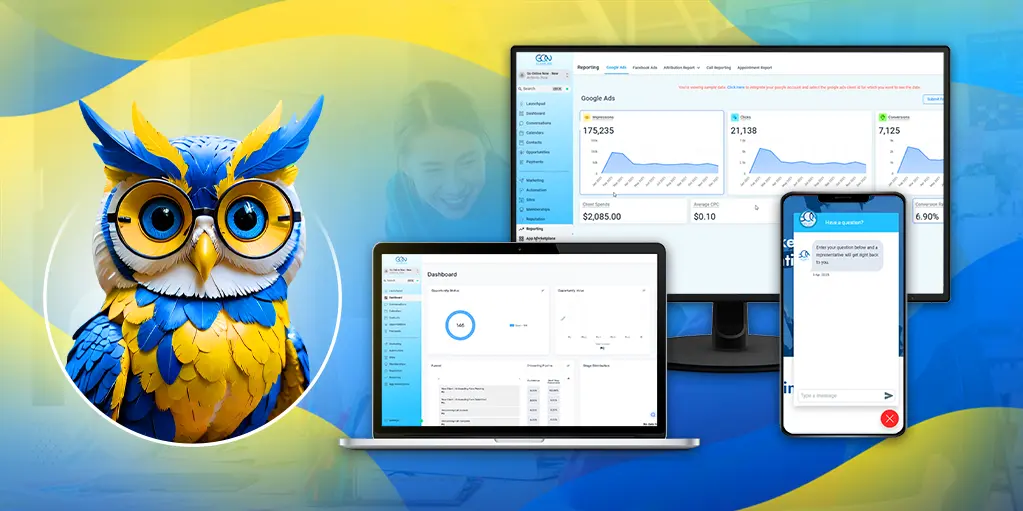Evaluating Internal Resources: Is Your Team Ready for Local SEO?
As businesses recognize the value of local SEO in attracting nearby customers, the question arises: Is your internal team prepared for effective local SEO? Local SEO encompasses a variety of strategies, including Google My Business optimization, creating citations, earning good reviews, conducting keyword research, implementing on-page optimization, building quality backlinks, and creating geo-targeted content. While having an in-house team to handle local SEO can be beneficial, it is critical to assess your team’s skills and knowledge to ensure they are up to the task.
This blog post will walk business owners through the assessment process, assisting them in identifying any knowledge gaps or resource constraints and making informed decisions about whether or not to outsource local SEO.
Assessing Local SEO Knowledge and Skills

- Keyword Research and On-Page Optimization
The foundation of effective local SEO is extensive keyword research to identify relevant terms and phrases that local customers use to find businesses like yours. This is an important step in tailoring your content and on-page optimization efforts. Examine your team’s ability to conduct keyword research and include relevant keywords in website content, meta tags, and headers. Make sure they understand best practices for on-page optimization, such as URL structure, meta descriptions, and image alt tags.
Using various tools and data sources to identify high-traffic and relevant keywords related to your business and location is what keyword research entails. The goal is to understand your local audience’s search intent and target keywords that have the potential to drive organic traffic to your website. To conduct effective keyword research, your team should be familiar with tools such as Google Keyword Planner, SEMrush, or Ahrefs.
After identifying the target keywords, the next step is to optimize your website pages for those keywords. On-page optimization entails incorporating the target keywords into the content, headings, meta tags, and URLs of your website. Furthermore, your team should ensure that each page provides valuable and relevant information to visitors and is structured in a way that search engines can easily understand.
As search engine algorithms evolve and user search behavior changes, it is critical to review and update your website’s on-page optimization on a regular basis. To ensure that your website remains competitive in local search results, your team should stay up to date on the latest best practices and trends in on-page SEO.
2. Google My Business (GMB) Optimization
It is critical for local SEO success to optimize your Google My Business listing. Your GMB profile provides valuable information to potential customers, such as your company name, address, phone number, and operating hours. Check that your team understands how to optimize and regularly update your Google My Business listing to ensure accuracy and relevance. They should also be proficient in using GMB features such as posts, reviews, and Q&A to effectively engage with customers.
To optimize your GMB listing, make sure that all of the information is correct, consistent, and up to date. This includes your company name, address, phone number, website URL, business category, and hours of operation. Accurate and consistent information is critical for local SEO because it helps search engines understand your business’s location and relevance.
Encourage your team to use the GMB Posts feature to post updates, offers, and announcements on a regular basis. These posts appear in your GMB listing and can be seen by potential customers looking for products or services in your area. Posts can be used to publicize special events, highlight new products or services, share customer feedback, or provide helpful hints and information.
Customer feedback is another important aspect of GMB optimization. Positive reviews can boost your company’s reputation and credibility, whereas negative reviews can turn off potential customers. Encourage your team to manage and respond to customer reviews on your Google My Business listing. Responses to both positive and negative reviews that are timely and thoughtful demonstrate your commitment to customer satisfaction and can influence the perception of your business.
Furthermore, the Q&A section in your GMB listing allows customers to ask questions about your company, and anyone can respond. Encourage your team to monitor and respond to these questions as soon as possible, as this helps potential customers build trust and transparency.
3. Building Citations and Earning Good Reviews
Creating citations on relevant local directories and platforms aids in the establishment of your business’s online presence and boosts your local search rankings. Check to see if your team understands the significance of consistent NAP (Name, Address, Phone Number) information across citations. They should also be skilled at acquiring and managing positive customer reviews, as positive reviews play an important role in establishing trust with potential customers.
Citations are instances of your company’s name, address, and phone number being mentioned on various online platforms. These citations could be directory listings, business listings, or mentions on local websites and blogs. Consistent NAP information across all citations is critical for local SEO because it allows search engines to verify your company’s legitimacy and location. Your team should make certain that your company’s information is correct and consistent across all online directories and platforms where it is listed.
In addition to citations, online reviews are an important factor in local SEO. Positive customer reviews inform search engines that your company offers valuable products or services and provides excellent customer service. Encourage your team to actively seek out and respond to positive and negative reviews from satisfied customers. Responding to reviews demonstrates that your company values customer feedback and is committed to resolving any issues that customers raise.
4. Link Building
- Backlinks from reputable and relevant websites are an important factor in local SEO. Examine your team’s ability to generate high-quality backlinks through outreach, collaboration, and content marketing. They must comprehend the significance of acquiring natural and authoritative links in order to boost your website’s domain authority and local search visibility.
- Backlinks are essentially “votes” from other websites that indicate the value and trustworthiness of your content. Backlinks are viewed as a signal of your website’s credibility and authority by search engines such as Google. But not all backlinks are created equal; quality and relevance are more important than quantity. Your team should concentrate on obtaining backlinks from reputable websites related to your industry or location.
- Encourage your team to investigate various link-building strategies, such as guest posting on industry-related websites, creating shareable and informative content, participating in local events and sponsorships, and contacting local organizations for collaboration opportunities.
- To track the effectiveness of link-building efforts, your team should use tools like Google Search Console or third-party SEO tools to track the number of backlinks, their source, and the pages on your website they are linking to. Analyzing and evaluating the backlink profile on a regular basis assists your team in identifying areas for improvement and assessing the impact of their link building efforts on local search rankings.
5. Geo-Targeted Content
Creating content that speaks to your local audience is essential for local SEO success. Assess your team’s ability to create engaging and relevant geo-targeted content that meets the needs, preferences, and interests of local customers. Blog posts, landing pages, social media posts, and localized website content are all examples of geo-targeted content.
Geo-targeted content allows your company to connect with the local community and demonstrate an understanding of their specific needs and interests. Your team should conduct research in order to identify local trends, events, and topics that are relevant to your target audience. Creating content that refers to local landmarks, traditions, or concerns can also assist your business in developing a strong local identity.
Encourage your team to include local keywords and phrases in their content in order to improve its visibility in local search results. If you own a restaurant in Chicago, for example, your team should consider phrases like “best pizza in Chicago” or “top-rated Italian restaurant in the Windy City.” These geo-targeted keywords can help your content rank higher in local search results when potential customers search for relevant terms in your area.
Your team should focus on optimizing the user experience for visitors from your target location in addition to creating content that appeals to local customers. This includes making sure your website is mobile-friendly, loads quickly, and provides easy access to important information like contact information and directions to your business location.
Identifying Knowledge Gaps and Resource Limitations

After you’ve assessed your team’s local SEO knowledge and skills, it’s critical to identify any potential knowledge gaps or resource constraints that could stymie your local SEO efforts. Among the common challenges that businesses may face are:
- Lack of Local SEO Expertise
Inadequate Local SEO Knowledge: Local SEO is a specialized field that necessitates staying up to date on the latest trends, algorithm changes, and best practices. It may be difficult to execute effective campaigns if your team lacks expertise in local SEO strategies. Consider whether additional training and resources can bridge the knowledge gap, or whether seeking outside expertise is a better option.
One solution to this problem is to give your team access to local SEO-focused online courses, webinars, and workshops. Platforms such as Moz Academy, SEMrush Academy, and Google’s Webmaster Academy provide valuable resources and training modules to assist your team in gaining the necessary skills and knowledge.
Encourage your team to actively participate in local SEO communities and forums as another option. Engaging with industry experts and fellow marketers can provide insightful information and networking opportunities.
2. Limited Time and Resources
- From conducting regular keyword research to managing online reviews and building backlinks, local SEO necessitates consistent effort and dedication. If your team is already busy with other important tasks, such as managing day-to-day operations or core marketing initiatives, allocating enough time to local SEO may be difficult.
- Outsourcing local SEO to a specialized agency can be a strategic move in such cases. You can leverage an experienced agency’s expertise and resources to implement effective local SEO strategies while allowing your internal team to focus on their primary responsibilities by partnering with them.
3. Scalability for Growth
- Consider whether your team is capable of scaling local SEO efforts as your company grows. If you anticipate an expansion in multiple locations or an increase in customer base, you must have the resources and expertise to handle the additional demands of local SEO.
- Managing multiple Google My Business listings, conducting location-specific keyword research, and tailoring content for different local markets can all be part of scaling local SEO efforts. If your team is not prepared for this level of scalability, outsourcing to a multi-location SEO agency can ensure a smooth and efficient expansion.
Deciding to Outsource Local SEO

Consider the following factors when deciding whether to outsource local SEO after evaluating your team’s capabilities and identifying any limitations:
- Cost-Effectiveness
Compare the cost of hiring additional in-house staff or providing extensive training to the cost of outsourcing local SEO. Outsourcing can be a cost-effective solution because it allows you to access a team of specialized experts without incurring the overhead costs associated with hiring and training new employees. Obtain quotes and proposals from reputable local SEO agencies and compare them to the estimated costs of in-house efforts before making a decision. Consider not only the immediate costs but also the long-term benefits and ROI that a skilled agency can provide.
2. Expertise and Experience
Working with an established local SEO agency gives you access to a team of professionals with years of experience in the field. Their knowledge of local SEO strategies, industry best practices, and ongoing monitoring of algorithm changes can greatly benefit your company. Local SEO firms are committed to staying current on the latest trends and developments in local search. They have worked with a variety of businesses and industries, so they can tailor their strategies to your specific needs and challenges.
3. Focus on Core Business Activities
Outsourcing local SEO allows your internal team to concentrate on their core competencies and primary business objectives. It relieves them of the responsibility of staying up to date on SEO trends and ensures that local SEO efforts are efficiently managed by experts. By delegating local SEO to a specialized agency, your team will be able to focus on delivering excellent products or services, improving customer experiences, and driving business growth.
4. Performance Tracking and Reporting
Tracking and reporting performance: A reputable local SEO agency will provide detailed performance reports, allowing you to track the impact of their efforts on your business. This transparency ensures that you can effectively track the ROI of your local SEO investment. Key performance metrics such as website traffic, keyword rankings, conversion rates, and the number of new customers acquired through local search should be provided by the agency. Regular performance reports can assist you in making data-driven decisions and ensuring that your local SEO strategy is in line with your business objectives.
Conclusion
Local SEO is critical for businesses that want to attract local customers and gain a competitive advantage in their communities. It is critical to assess your team’s local SEO knowledge and skills in order to determine whether they are prepared for the task at hand. Identifying any knowledge gaps or resource constraints will allow you to make more informed decisions about local SEO outsourcing.
Collaboration with a specialized agency can provide significant benefits such as cost-effectiveness, access to expertise, focus on core business activities, and transparent performance tracking. By selecting the best approach for your company, you can ensure that your local SEO efforts drive success and effectively connect you with your local customer base.
Remember that local SEO is a continuous effort to remain visible and relevant in local search results. Whether you build an in-house team or hire an agency, ongoing optimization and adaptation to changing local search trends are critical for maintaining and improving your local search rankings.
Investing in local SEO is an investment in your company’s long-term success. A strong local SEO strategy can attract local customers, optimize Google My Business, create citations on relevant directories, earn positive reviews, conduct extensive keyword research, implement on-page optimization, build quality backlinks, and develop compelling geo-targeted content. Understanding your team’s strengths and limitations, as well as making informed decisions about local SEO, can propel your company toward long-term growth and create long-lasting relationships with your valuable local customers.
Take Action Now, Supercharge Your Online Marketing! 🚀
Ready to take your organization’s marketing to the next level? 🚀 Contact us now to unlock the full potential of online marketing! 🌟 Let’s grow your business, attract more clients, and save money on effective marketing strategies. 💼 Fill out the ➡️ form here or book a convenient ➡️ Zoom meeting. 📆 Don’t miss this opportunity to get all your burning questions answered! 🔥 Let’s supercharge your marketing efforts together! 💪






One Response
Wow, fantastic weblog layout! How lengthy have you been running a blog for?
you make running a blog glance easy. The overall
look of your site is magnificent, as neatly as
the content! You can see similar: sklep internetowy and here sklep